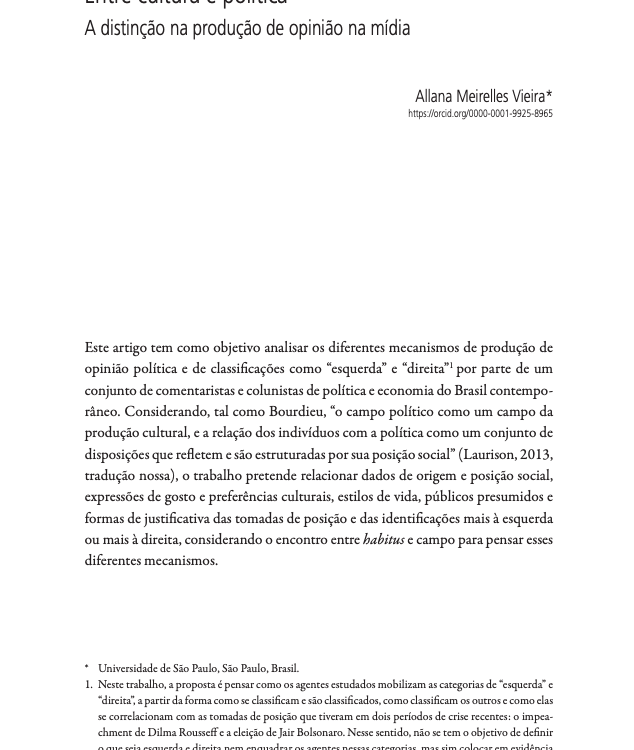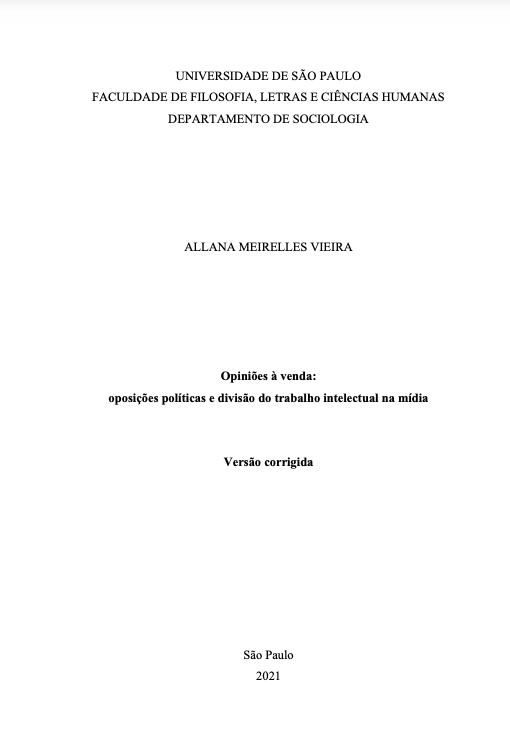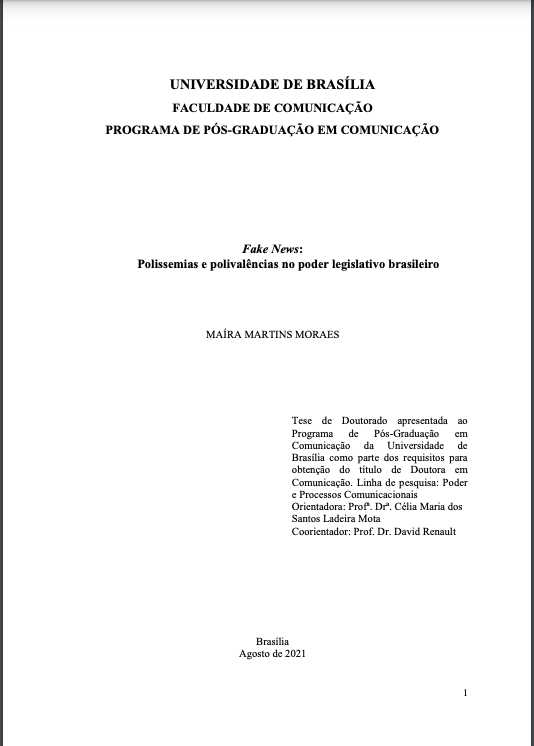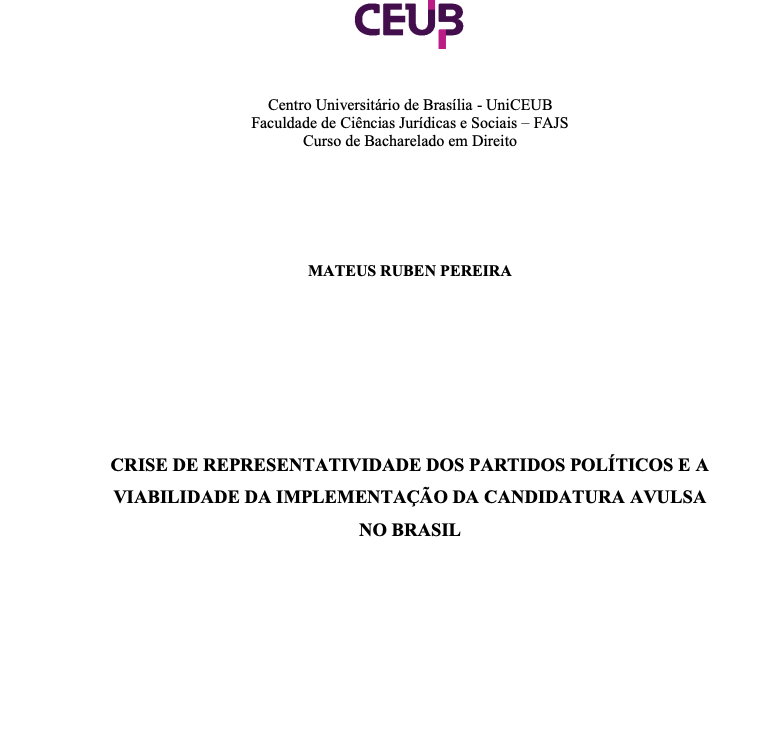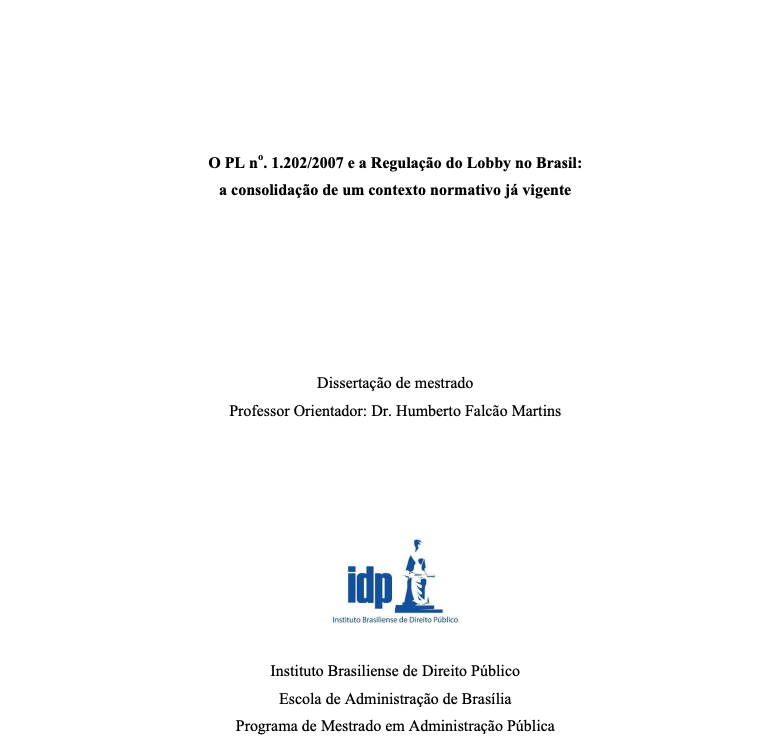4 de February de 2022
in 4 de February de 2022
This paper aims to analyze the different mechanisms of political opinion production among a group of columnists, commentators and political analysts of the media in contemporary Brazil, relating these mechanisms to the positions of agents in the social space. Based on Pierre Bourdieu’s analyzes in Distinction: A social critique of […]
20 de December de 2021
in 20 de December de 2021
3 de December de 2021
in 3 de December de 2021
This thesis aims to analyze the social conditions of the position-taking on the right-wing or left-wing of media intellectuals in contemporary Brazil. The proposal is to make their political positions sociologically intelligible, especially regarding two recent moments of crisis: the impeachment of Dilma Rousseff and the election of Jair Bolsonaro. […]
2 de November de 2021
in 2 de November de 2021
In this study, we propose a problematization of the expression fake news as a discursive event that has emerged from several institutions. For this, we elaborated a genealogy from the Brazilian Legislative Power, leading us to understand the power disputes and the discourse produced within the instances of the Social […]
11 de August de 2021
in 11 de August de 2021
2010_JulioJosedeAraujoFilho Autor: Araújo Filho, Júlio José de;Programa de Pós-graduação Administração, Universidade de Brasília,2010.
24 de April de 2021
in 24 de April de 2021
1 de April de 2021
10 de March de 2021
in 10 de March de 2021
The study focuses on the crisis of political parties’ representativeness and the feasibility of independent candidacy in Brazil, based on bibliographic and dogmatic research, seeking theoretical concepts, principles, positive legal norms, and doctrinal and jurisprudential interpretations, as well as political and legal discussions related to Constitutional Law, Electoral Law, and […]
28 de October de 2020
in 28 de October de 2020
25 de October de 2020
1 de October de 2020
in 1 de October de 2020
20 de August de 2020
in 20 de August de 2020
18 de August de 2020
27 de May de 2020
in 27 de May de 2020
1 de April de 2020
in 1 de April de 2020
1 de March de 2020
in 1 de March de 2020
The regulation of the lobby in Brazil is a subject that carries increasing prominence, especially, considering the controversies that relate the activity with corruptive practices and that generate a negative image for the practice, which, in spite of any argument, finds legal support in the Brazilian legal order. After several […]
1 de January de 2020
in 1 de January de 2020
1 de January de 2020
in 1 de January de 2020
1 de January de 2020
in 1 de January de 2020
1 de January de 2020
in 1 de January de 2020

